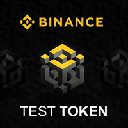-
 Bitcoin
Bitcoin $86,068.0566
-3.41% -
 Ethereum
Ethereum $2,356.1864
-5.34% -
 Tether USDt
Tether USDt $0.9991
-0.01% -
 XRP
XRP $2.2261
-3.86% -
 BNB
BNB $613.4995
-2.58% -
 Solana
Solana $140.4983
-1.00% -
 USDC
USDC $0.9999
-0.01% -
 Dogecoin
Dogecoin $0.2089
-2.13% -
 Cardano
Cardano $0.6682
-2.77% -
 TRON
TRON $0.2287
-1.00% -
 Chainlink
Chainlink $15.5535
0.58% -
 Litecoin
Litecoin $129.4421
3.56% -
 Avalanche
Avalanche $23.0691
2.71% -
 Sui
Sui $2.9077
-4.07% -
 Stellar
Stellar $0.2898
-2.54% -
 Toncoin
Toncoin $3.4777
-3.59% -
 Shiba Inu
Shiba Inu $0.0...01466
1.34% -
 UNUS SED LEO
UNUS SED LEO $9.2403
2.40% -
 Hedera
Hedera $0.2005
0.58% -
 Polkadot
Polkadot $5.0230
3.94% -
 MANTRA
MANTRA $7.2959
-4.49% -
 Hyperliquid
Hyperliquid $20.9454
2.47% -
 Bitcoin Cash
Bitcoin Cash $299.5839
0.86% -
 Ethena USDe
Ethena USDe $0.9993
-0.02% -
 Dai
Dai $0.9997
-0.01% -
 Bitget Token
Bitget Token $4.1106
-1.98% -
 Uniswap
Uniswap $8.1958
-1.15% -
 Monero
Monero $213.8240
-4.43% -
 NEAR Protocol
NEAR Protocol $3.0860
0.26% -
 Aptos
Aptos $6.1129
7.44%
What are the tax implications of trading Tokamak Network coins?
Understanding cryptocurrency taxation fundamentals is critical, as transactions involving Tokamak Network (TON) coins are subject to capital gains tax rules, varying depending on holding period and transaction type.
Jan 02, 2025 at 03:05 pm

Key Points:
- Understanding Cryptocurrency Taxation Fundamentals
- Tax Considerations for Short-Term and Long-Term Holding
- Reporting Capital Gains and Losses
- Tax Implications of Staking and Lending
- Impact of Wash Sale Rule on Cryptocurrency Transactions
- International Tax Implications for Tokamak Network Coin Holders
Understanding Cryptocurrency Taxation Fundamentals
The Internal Revenue Service (IRS) classifies cryptocurrencies as property, similar to stocks or bonds. Consequently, transactions involving Tokamak Network (TON) coins are subject to capital gains tax rules. These rules dictate that any profit earned from selling TON coins held for less than one year is taxed as short-term capital gains, while profits from selling TON coins held for more than one year qualify as long-term capital gains.
Tax Considerations for Short-Term and Long-Term Holding
- Short-Term Capital Gains (Holding Period Less Than One Year): Profits realized from selling TON coins within a year of purchase are taxed at the individual's ordinary income tax rate. This rate can range from 10% to 37%, depending on the taxpayer's income level.
- Long-Term Capital Gains (Holding Period Greater Than or Equal to One Year): Profits from selling TON coins after holding them for more than a year are taxed at a lower rate, ranging from 0% to 20%. The specific rate depends on the taxpayer's income and filing status.
Reporting Capital Gains and Losses
Taxpayers must report capital gains and losses from TON coin transactions on their annual tax return, Form 1040. The IRS requires the reporting of both realized and unrealized gains and losses. Realized gains or losses occur when a TON coin is sold or exchanged, while unrealized gains or losses reflect the change in value of the coin while it is still being held.
Tax Implications of Staking and Lending
Staking and lending TON coins can generate additional income, which is also subject to taxation.
- Staking: Staking involves holding TON coins in a cryptocurrency wallet to support the network and earn rewards. The rewards earned through staking are considered ordinary income and are taxed at the individual's ordinary income tax rate.
- Lending: Lending TON coins to others through platforms like centralized exchanges or decentralized finance (DeFi) protocols also generates interest income. The interest earned from lending is also taxed as ordinary income.
Impact of Wash Sale Rule on Cryptocurrency Transactions
The wash sale rule prevents taxpayers from selling a security (including TON coins) at a loss and then repurchasing a substantially identical security within 30 days. If the wash sale rule applies, the loss from the sale cannot be used to offset capital gains or reduce taxable income.
International Tax Implications for Tokamak Network Coin Holders
Individuals residing outside the United States may face different tax implications for TON coin transactions, depending on the tax laws of their country of residence. It is crucial to understand the tax regulations specific to one's jurisdiction when engaging in cryptocurrency trading.
FAQs
- How do I calculate my capital gains on TON coin sales?
Subtract the purchase price of the coins from the selling price. The difference is your capital gain or loss.
- What if I have multiple purchases of TON coins at different prices?
Use the first-in, first-out (FIFO) method to determine the cost basis of the coins you sold. This assumes that the coins purchased first are sold first.
- How do I report staking rewards on my tax return?
Report staking rewards as ordinary income on Schedule 1 of Form 1040.
- Can I deduct TON coin mining expenses from my taxes?
Mining expenses can be deducted as miscellaneous itemized deductions subject to a 2% of adjusted gross income (AGI) floor.
- What are the tax implications of selling TON coins on a decentralized exchange (DEX)?
DEX transactions are typically treated the same as centralized exchange transactions for tax purposes. However, it is essential to keep accurate records of all your trades.
Disclaimer:info@kdj.com
The information provided is not trading advice. kdj.com does not assume any responsibility for any investments made based on the information provided in this article. Cryptocurrencies are highly volatile and it is highly recommended that you invest with caution after thorough research!
If you believe that the content used on this website infringes your copyright, please contact us immediately (info@kdj.com) and we will delete it promptly.
- The story of Dogecoin shines with the shimmer of improbability.
- 2025-02-27 16:55:31
- The Unbelievable Potential of Dogecoin: Dream or Reality?
- 2025-02-27 16:55:31
- Rexas Finance (RXS) Aims to Outperform Solana (SOL) by Tokenizing Real-World Assets
- 2025-02-27 16:55:31
- HBAR Price Struggles at $0.20 Despite SWIFT's $150T Gamble on Hedera
- 2025-02-27 16:45:48
- Bitcoin (BTC) Price Has Declined Recently from the $96K Level to a New Low of $87K
- 2025-02-27 16:45:48
- HBAR Price Needs A Strong Push to Break Out of the Persistent Downtrend
- 2025-02-27 16:45:48
Related knowledge
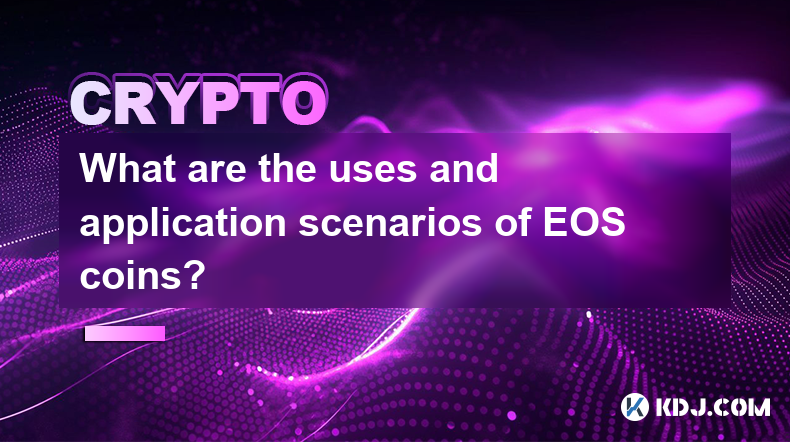
What are the uses and application scenarios of EOS coins?
Feb 26,2025 at 09:54pm
EOS: Decentralized Infrastructure for Scalable Blockchain ApplicationsKey Points:EOS enables the creation and deployment of decentralized applications with unparalleled scalability and efficiency.Its unique architecture features a high-throughput blockchain with zero transaction fees and the ability to process millions of transactions per second.EOS is ...
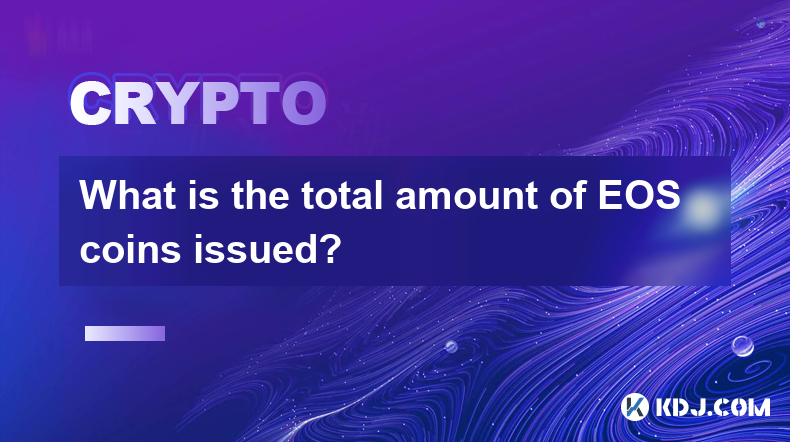
What is the total amount of EOS coins issued?
Feb 26,2025 at 06:24pm
Key PointsTotal Supply: Understand the concept of initial supply and its impact on EOS tokenomicsSupply Dynamics: Explore the various factors that affect EOS supply, including inflation and staking incentivesMarket Capitalization vs. Circulating Supply: Delve into the nuances between these metrics and their significance in token valuationDistribution an...
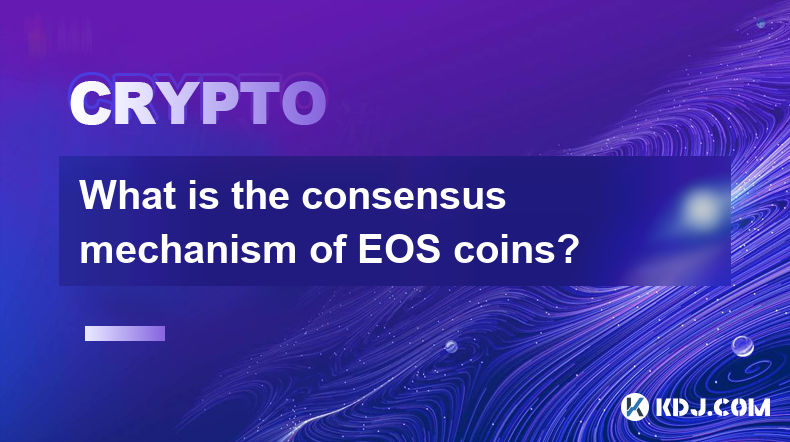
What is the consensus mechanism of EOS coins?
Feb 26,2025 at 11:19am
Key Points:EOSIO: The Foundation of EOS's Consensus MechanismDPOS: Delegated Proof-of-StakeBlock Producer ElectionsContinuous Block ProductionBlock Validation and IrreversibilityConsensus and Fork PreventionCommunity Governance and VotingWhat is the Consensus Mechanism of EOS Coins?EOS, an innovative blockchain platform, employs a unique consensus mecha...
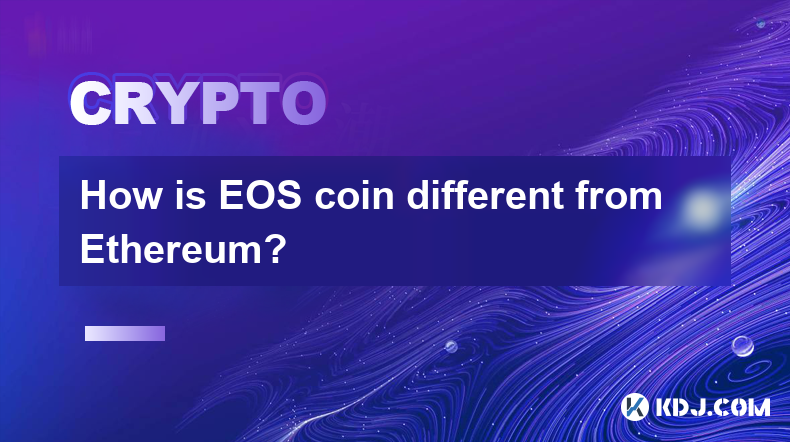
How is EOS coin different from Ethereum?
Feb 26,2025 at 10:48am
Key Points:Overview of EOS and EthereumDifferences in Consensus MechanismsAdvantages and Limitations of Each PlatformUse Cases and Target AudiencesComparison of Transaction Fees and ScalabilityCommunity Support and Development ActivityHow is EOS Coin Different from Ethereum?1. Overview of EOS and EthereumEOS and Ethereum are two of the most popular bloc...
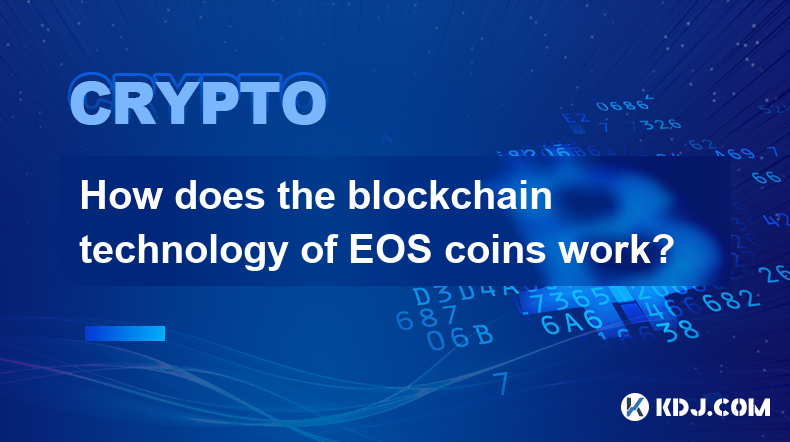
How does the blockchain technology of EOS coins work?
Feb 25,2025 at 11:13pm
Key PointsEOS is a blockchain platform that provides a high-throughput and scalable solution for decentralized applications.EOS uses a delegated proof-of-stake (DPoS) consensus mechanism to elect block producers and maintain the blockchain.EOSIO, the open-source software that powers EOS, offers a range of developer tools and features to facilitate the c...
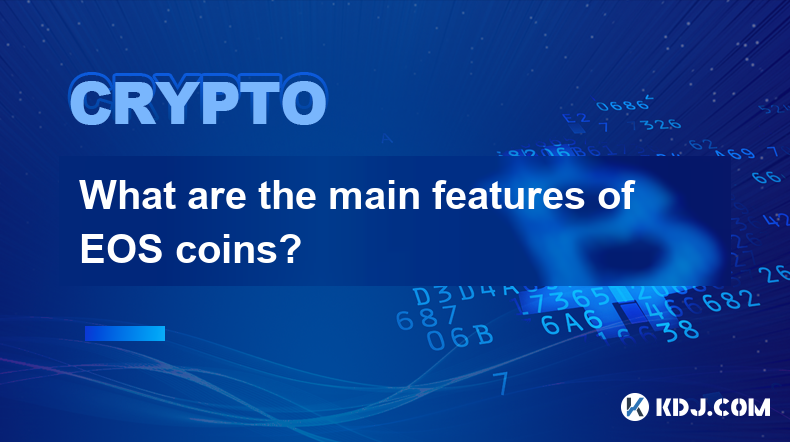
What are the main features of EOS coins?
Feb 27,2025 at 04:36pm
Key Points:EOS is a decentralized blockchain platform designed for building scalable and secure applications.EOS uses a unique consensus mechanism called Delegated Proof of Stake (DPoS), which improves transaction speed and efficiency.EOS has a robust ecosystem with a wide range of decentralized applications (dApps) and tools.EOS is known for its low tr...

What are the uses and application scenarios of EOS coins?
Feb 26,2025 at 09:54pm
EOS: Decentralized Infrastructure for Scalable Blockchain ApplicationsKey Points:EOS enables the creation and deployment of decentralized applications with unparalleled scalability and efficiency.Its unique architecture features a high-throughput blockchain with zero transaction fees and the ability to process millions of transactions per second.EOS is ...

What is the total amount of EOS coins issued?
Feb 26,2025 at 06:24pm
Key PointsTotal Supply: Understand the concept of initial supply and its impact on EOS tokenomicsSupply Dynamics: Explore the various factors that affect EOS supply, including inflation and staking incentivesMarket Capitalization vs. Circulating Supply: Delve into the nuances between these metrics and their significance in token valuationDistribution an...

What is the consensus mechanism of EOS coins?
Feb 26,2025 at 11:19am
Key Points:EOSIO: The Foundation of EOS's Consensus MechanismDPOS: Delegated Proof-of-StakeBlock Producer ElectionsContinuous Block ProductionBlock Validation and IrreversibilityConsensus and Fork PreventionCommunity Governance and VotingWhat is the Consensus Mechanism of EOS Coins?EOS, an innovative blockchain platform, employs a unique consensus mecha...

How is EOS coin different from Ethereum?
Feb 26,2025 at 10:48am
Key Points:Overview of EOS and EthereumDifferences in Consensus MechanismsAdvantages and Limitations of Each PlatformUse Cases and Target AudiencesComparison of Transaction Fees and ScalabilityCommunity Support and Development ActivityHow is EOS Coin Different from Ethereum?1. Overview of EOS and EthereumEOS and Ethereum are two of the most popular bloc...

How does the blockchain technology of EOS coins work?
Feb 25,2025 at 11:13pm
Key PointsEOS is a blockchain platform that provides a high-throughput and scalable solution for decentralized applications.EOS uses a delegated proof-of-stake (DPoS) consensus mechanism to elect block producers and maintain the blockchain.EOSIO, the open-source software that powers EOS, offers a range of developer tools and features to facilitate the c...

What are the main features of EOS coins?
Feb 27,2025 at 04:36pm
Key Points:EOS is a decentralized blockchain platform designed for building scalable and secure applications.EOS uses a unique consensus mechanism called Delegated Proof of Stake (DPoS), which improves transaction speed and efficiency.EOS has a robust ecosystem with a wide range of decentralized applications (dApps) and tools.EOS is known for its low tr...
See all articles















































































